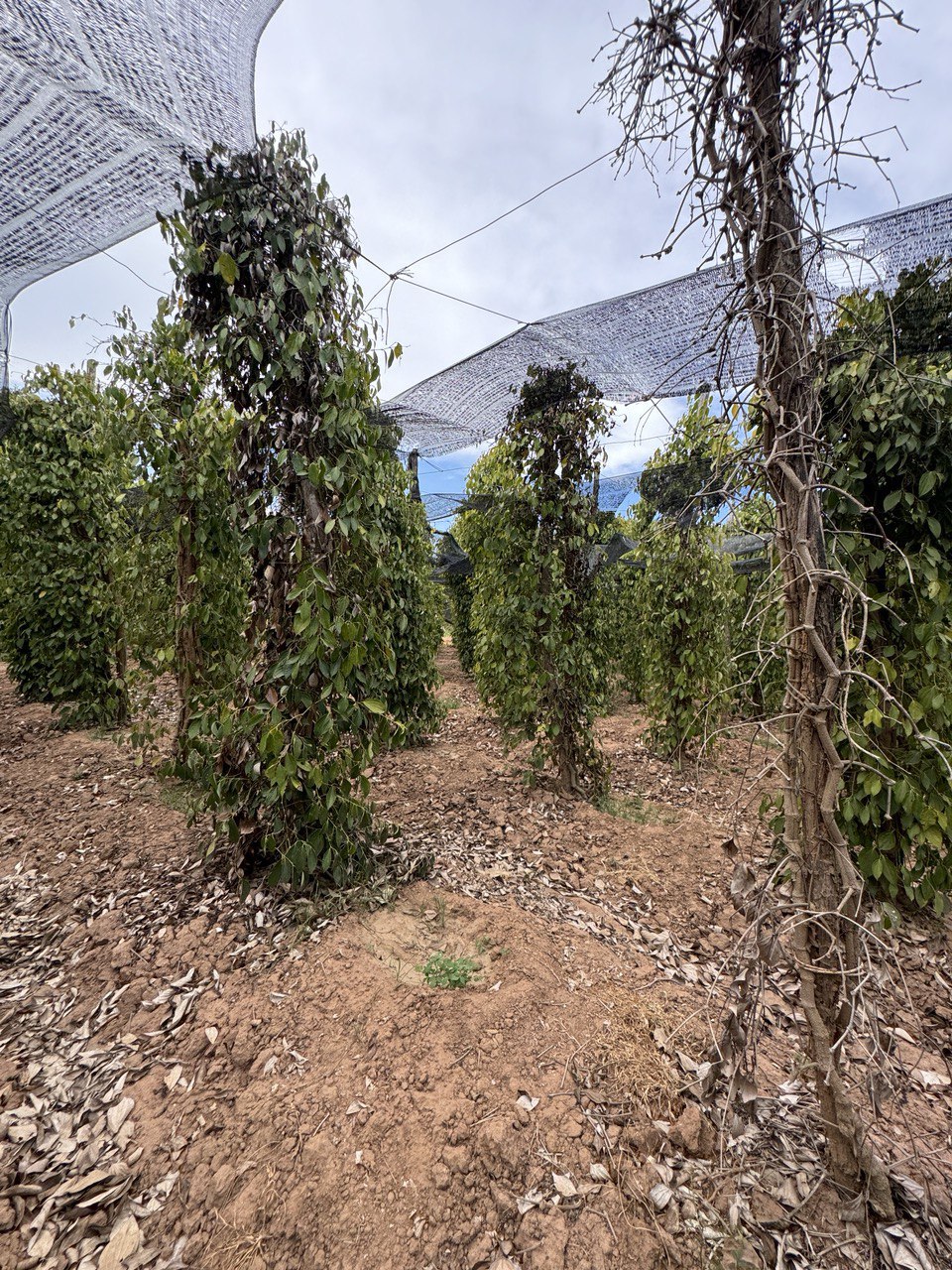


Kampot Pepper: drought halves yield
Publish date: 13 June 2024 / Food / Author : ATH Sokren
“In Cambodia, the precious Kampot Pepper in danger in the face of climate change”. Under this title, a story from Agence France Presse (AFP) was published in dozens of news media around the world, proof of the international fame of Cambodia's star spice.
“South and Southeast Asia have experienced an extreme heat wave in recent weeks after long months of drought. In some regions of Cambodia, the mercury reached 43°C. Human-induced climate change will lead to more frequent, longer and more intense heatwaves, scientists regularly warn.
“Appreciated by great chefs around the world for its spicy aroma with floral and menthol notes, Kampot Pepper is considered the caviar of pepper, sold in delicatessens for around 200 euros per kilo,” continues AFP.
The European Union's designation of Kampot Pepper as a "Protected Geographical Indication" was a source of pride and economic stability, but it offers little protection against the scorching temperatures and prolonged drought that have become all too common.
According to the president of the Kampot Pepper Promotion Association, the yield will be halved this year, and exports could experience a shortage in 2025. Normally, the PGI zone should have produced around 120 tons. But this year, torrential rains at the start of the season destroyed the plants' flowers and the drought that followed sealed their fate.
For the president of the association, farmers in Kampot have no choice but to adapt by finding solutions to store more water.
The Confirel plantations also suffered but their water reserves made it possible to limit the damage. “We have integrated the risks linked to climate change into the design of our plantations,” said Dr Hay Ly Eang, CEO of Confirel. “Our model is based on respect for the environment, on the one hand by choosing organic farming and, on the other hand, by operating on the principles of the circular and sustainable economy which advocate recycling and recovery of organic waste. This model contributes to the prevention of global warming. In addition, the creation of hydraulic reserves and the establishment of water supply circuits were at the heart of the development of our plantations.”
Commenting on the AFP report, the environmentalist site Pact for the Climate writes: “Dating back several generations, pepper cultivation in Kampot survived the Khmer Rouge and political instability but is now threatened by the climate. Under the breathless gaze of the international culinary community, Kampot farmers continue their daily fight against the natural elements. Their plight is not just a local problem; it is a global warning sign. The Kampot pepper crisis is a call to action on climate change, a reminder that what we stand to lose is not just a spice, but a piece of the rich cultural and traditional tapestry of our world.”




